The making of a turning point: A rural Chinese women’s cooperative joins the COVID-19 fight
IFAD Asset Request Portlet
Asset Publisher
The making of a turning point: A rural Chinese women’s cooperative joins the COVID-19 fight
12 May 2020Women across China’s rural Yunnan province have earned a new name: qiao xiu niang, or “skilled embroidery lady.”
In 2016, the IFAD-funded YARIP project had partnered with the Qujing Zhanyi District Women’s Federation to transform traditional embroidery art into a new source of income and employment. Qujing, located in the ethnically diverse Yunnan province, is home to the Yi, an ethnic group with a population of about 300,000. Many Yi women are inheritors of Yi embroidery, a traditional art with a history of over one thousand years. Yet, over the centuries, several factors such as weak community organization, the absence of necessary commercial operations, and the resulting dearth of opportunities to develop marketing skills and financing opportunities, had left many Yi women in a persistent cycle of poverty.
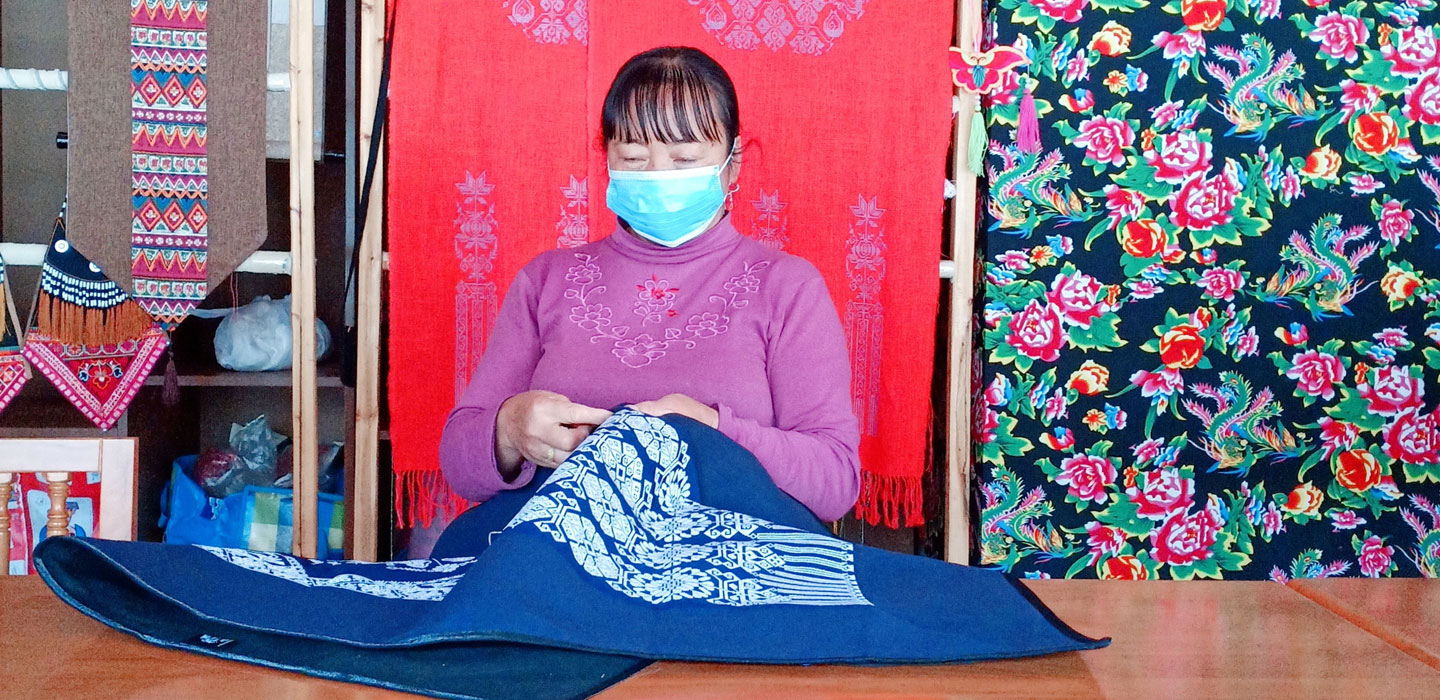
A Yi woman demonstrates traditional Yi embroidery.
The partnership sought to change all that. Drawing from a participatory approach, IFAD provided Yi women’s groups with financing, equipment and facilities, along with skills training. Soon, a number of women’s embroidery teams formed throughout Dapo and Lingjiao counties, collectively establishing the Qujing Women Embroidery Farmers Cooperative. Since then, the cooperative has trained more than 2,800 “embroidery ladies.”
When the COVID-19 pandemic struck their province earlier this year, the cooperative, like many, found their normal way of life completely changed – but they didn’t let that stop them.
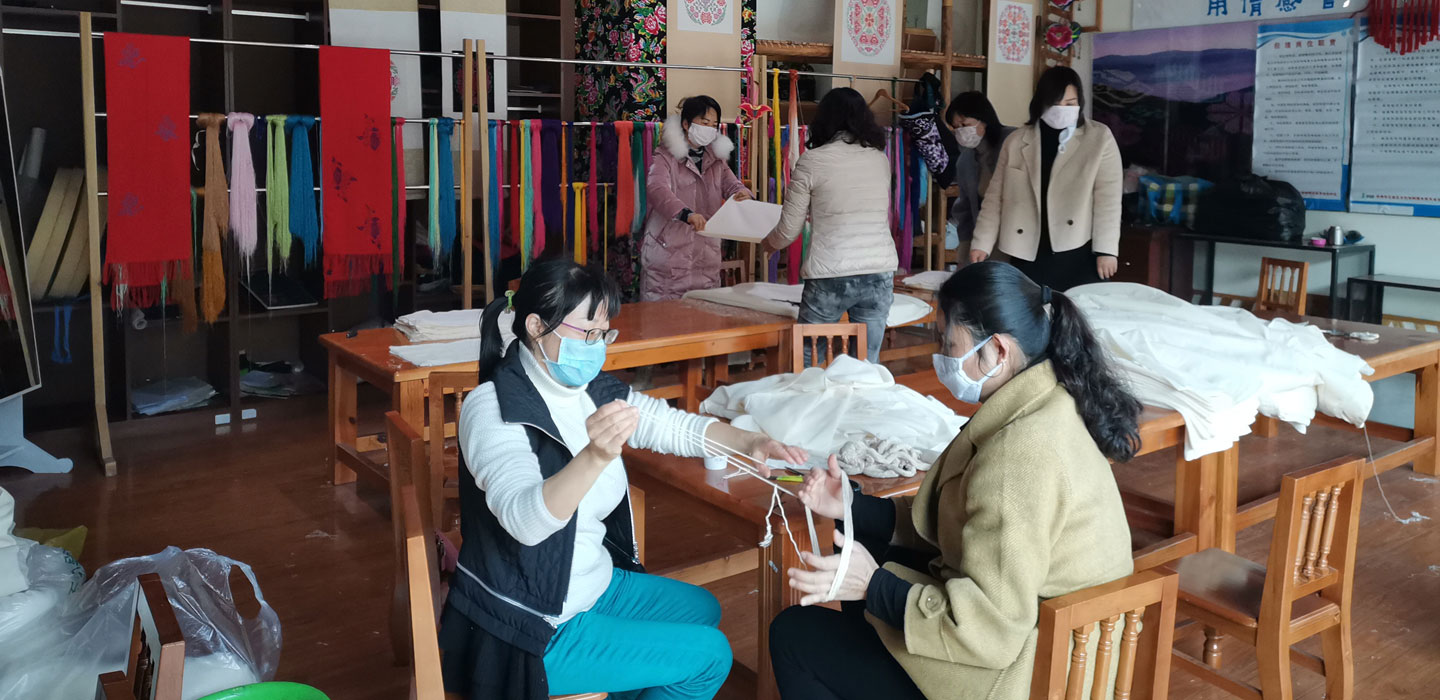
Members of the Women Embroidery Farmers Cooperative make masks at the cooperative centre.
As in many other parts of the world, masks have been in high demand throughout China since the beginning of the pandemic. Faced with the scarcity of masks and the especially urgent need to control the spread of COVID-19 throughout the country, the embroidery ladies of the cooperative have joined together to contribute their efforts. In their sterilized workshop, the ladies cut gauze, fold cloth, thread, and sew, stitch by stitch and thread by thread, to produce handmade masks. The finished masks are disinfected according to strict standards, then distributed to frontline community workers for free.
"The cooperative originally planned to buy a batch of masks to donate to the community, but now it is difficult to buy masks online and in pharmacies. We then decided to call on the members to make masks for the community," explains Ms. Wang Luhua, the head of the cooperative and the leader of the initiative.
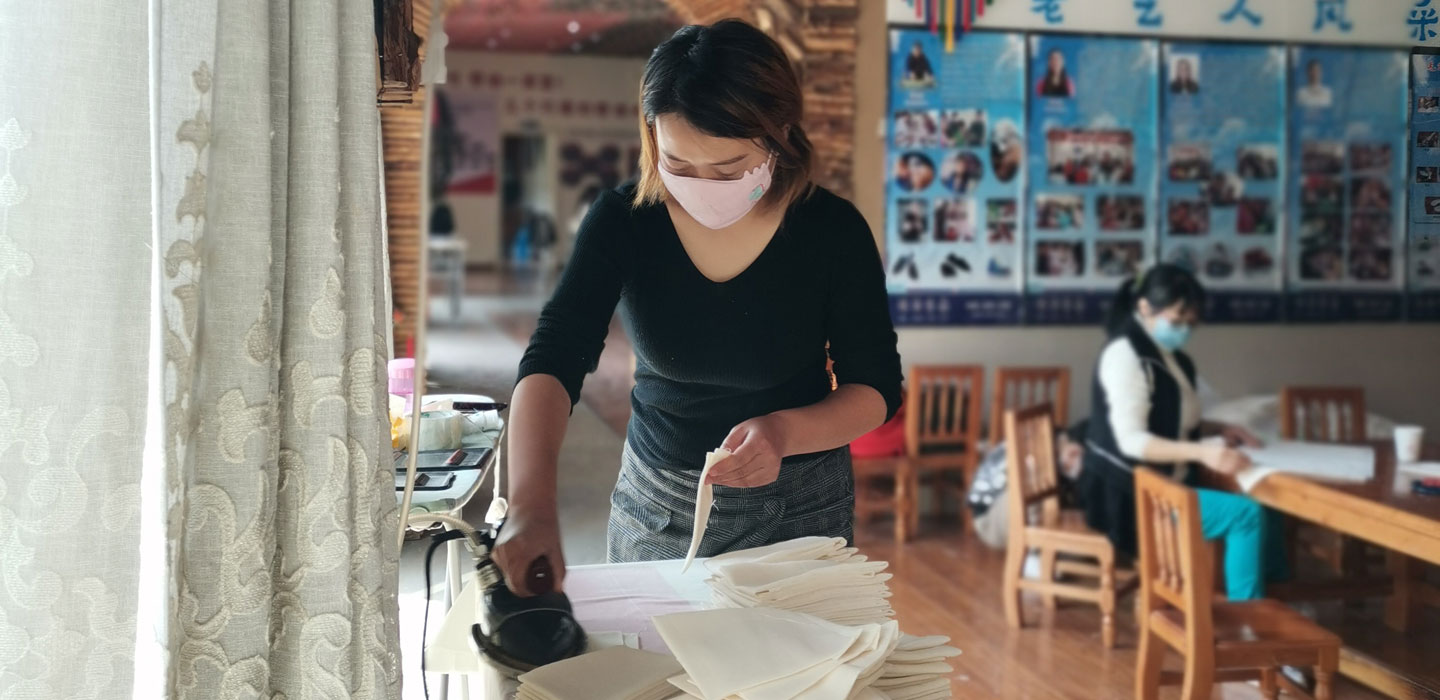
A cooperative member irons fabric in preparation for making masks.
Despite the collective’s laudable efforts, Ms. Wang remains modest about their work. “This mask is incomparable to medical masks, but it can at least block the spread of some droplets. And the professional medical masks could be saved for the medical staff who are fighting the epidemic. It is better than nothing, and we just want to do our best for everyone," she says.
"I am very happy to join the community initiative, work together with other members, and do my best to fight the pandemic," adds Ms. Yan Chengmei, one of the volunteer embroiderers.
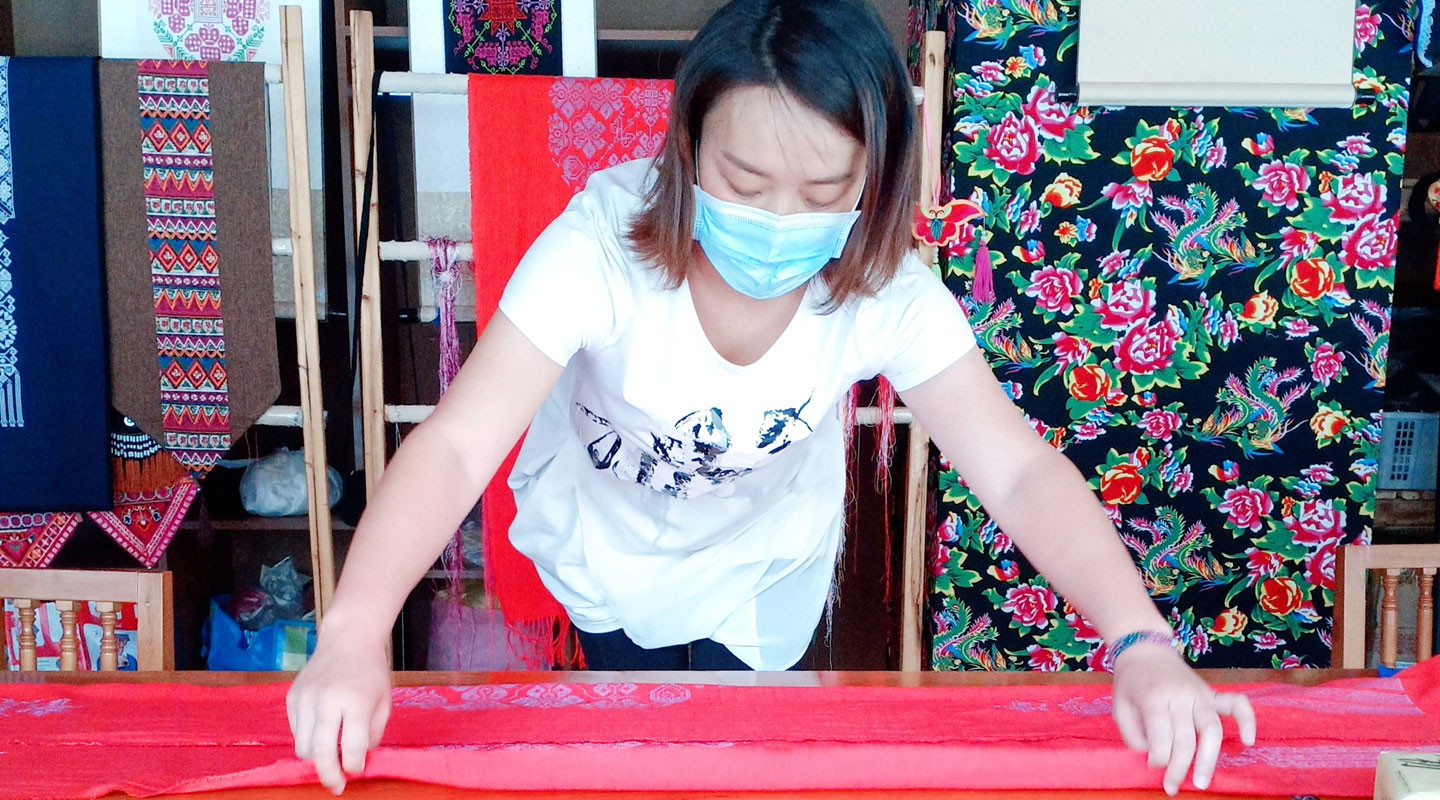
A member of the Women Embroidery Farmers Cooperative, working at the cooperative centre, shares her progress over WeChat.
Like many other provinces of China, Yunnan was under lockdown during much of February – but the Women Embroidery Farmers Cooperative was determined to keep going. Even as the COVID-19 pandemic prevented them from gathering in person, they developed a solid business continuity plan.
During the lockdown, the cooperative members were initially encouraged to continue working at home. Ms. An Taohua, an award-winning embroiderer, produced more than 10 new scarves at home during the pandemic.
The cooperative has also made extensive use of digital platforms to continue their business. Ms. An, for example, shared her scarf-making experiences and skills amongst the other cooperative members via the messaging service WeChat.
Ms. Wan Jincui, another member, has found the cooperative’s WeChat groups invaluable for continuing her work. Like many of her fellow members, she never learned to read or write – but thanks to WeChat’s voice messaging and video features, she has been able to ask questions and receive advice on new techniques.
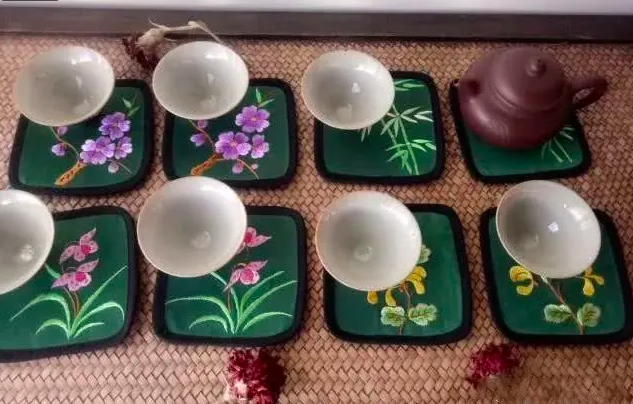
A sample of some of the products that cooperative members have been able to sell via digital platforms.
Beyond using them for teaching and learning, the Women Embroidery Farmers Cooperative have begun to make full use of digital platforms for marketing and sales, too. Their products are now promoted in various online marketplaces, including retail giant Alibaba’s Tmall storefront, the popular Chinese e-commerce website JD, and social media sites such as Weibo. Members have even livestreamed their embroidery workshops to attract more customers.
Faced with the new realities of the COVID-19 pandemic, the Women Embroidery Farmers Cooperative has made the crisis into a turning point. They have found new ways to communicate and developed a holistic digital supply chain to keep their business running – and they have even found an opportunity to support those on the front lines. The determination and innovative spirit displayed by the qiao xiu niang belies more than just their prodigious skill.
Learn more about IFAD’s work in China.
Read more about IFAD’s response to COVID-19.